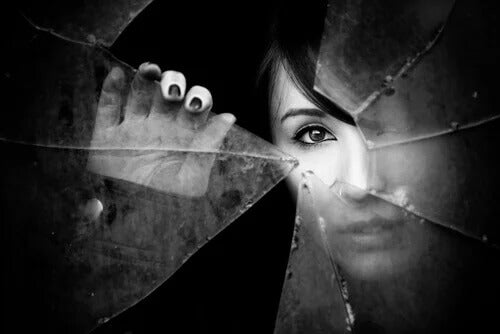The concept of claim was developed by Sigmund Freud and has a lot to do with what has triggered the coronavirus pandemic in the world, during this period many people experienced childhood anxiety that seemed to have stayed in the past. feeling of vulnerability, even helplessness, to a higher force.
It is the basic feeling that arises in the presence of disaster: child anguish, anguish, because it is a fear that erupts in different directions, it is not this fear that arises from an identified and delineated threat, but from an unpredictable threat with many darkness.
- Our chances of action suddenly became very limited.
- Like when we were kids.
- The pandemic has made us feel deeply dependent on those who lead us.
- Decision-makers.
- And even chance.
- We’re like barefoot kids alone in a dark forest.
“The Sinister is a condition and a limit of Beauty: it must be present in the form of absence, it must be veiled. Can’t it be revealed?
Before Freud, the sinister was seen as something new and threatening, which caused horror precisely because it was unknown. The father of psychoanalysis has reversed this perspective, addressed the subject with two concepts: the familiar and the strange.
The familiar is what we know and in front of which we feel a sense of security, precisely because it is part of the usual. Are people, situations, spaces, ideas, feelings, etc. , part of this environment that we can call?Familiar, or usual.
The strange thing, on the other hand, is what is outside the dimensions in which we evolve, it is not so much what we do not know, but what we do not recognize, we know little or nothing. It’s not part of our daily lives, we don’t understand its logic, we have no idea how to see it or address it.
For Freud, the sinister appears when the familiar becomes strange or the stranger becomes familiar, it is not so much the novelty that causes the horror, but the transformation of something that we consider known into something strange and vice versa. the other is what would cause anxiety.
All horror movies start from this premise: Dracula is scary because he is like any other human being, but at the same time he is completely different, disaster occurs when this terrible transformation occurs in which an elegant count ends up becoming an abominable monster .
If Dracula were a vampire all the time, we might also be afraid, but otherwise: he would not be a sinister being, we could walk away, reject him or take him out of our field of vision, but, whether or not, we end up being victims of the ambiguity of his being and enter the land of disaster.
The opposite also happens when the stranger becomes familiar. Some horror films illustrate this situation. Suddenly, the protagonist discovers that he is in the midst of strange beings, although before seeing them as equals. In Rosemary’s O Baby, for example, this metamorphosis occurs that leads to disaster.
The coronavirus pandemic has all the elements that can be found in the claim file, and suddenly everything around us was flooded with suspicion.
The world we live in every day now hides dangers that can be almost everywhere. The people we used to kiss now are a risk. The virus can be anywhere and nowhere. One way or another, we don’t see it.
In addition, no reliable person is able to limit the risk of this virus within the acceptable margins we could admit, what we all know is that its effects can be totally devastating and that our best option is to hide from it. we have now become strange. And the virus, this unknown, now seems to be everywhere and floods the information we receive.
How to withstand the accident? The first thing is to know objectively the threat, the data of the process provided by science, including forms of contagion, if we focus on that, the number of sources of contagion decreases, the heart of the problem is close contact, with people and objects, therefore, we must pay attention to the times when these contacts occur.
It is also worth remembering that although we feel children, we are actually adults, so we have a margin of autonomy and action and, however limited this margin, we must use it to decide how we handle our emotions and our new routine. Strengthen our hearts and believe that as individuals and as a species, we also have tools to protect ourselves.

